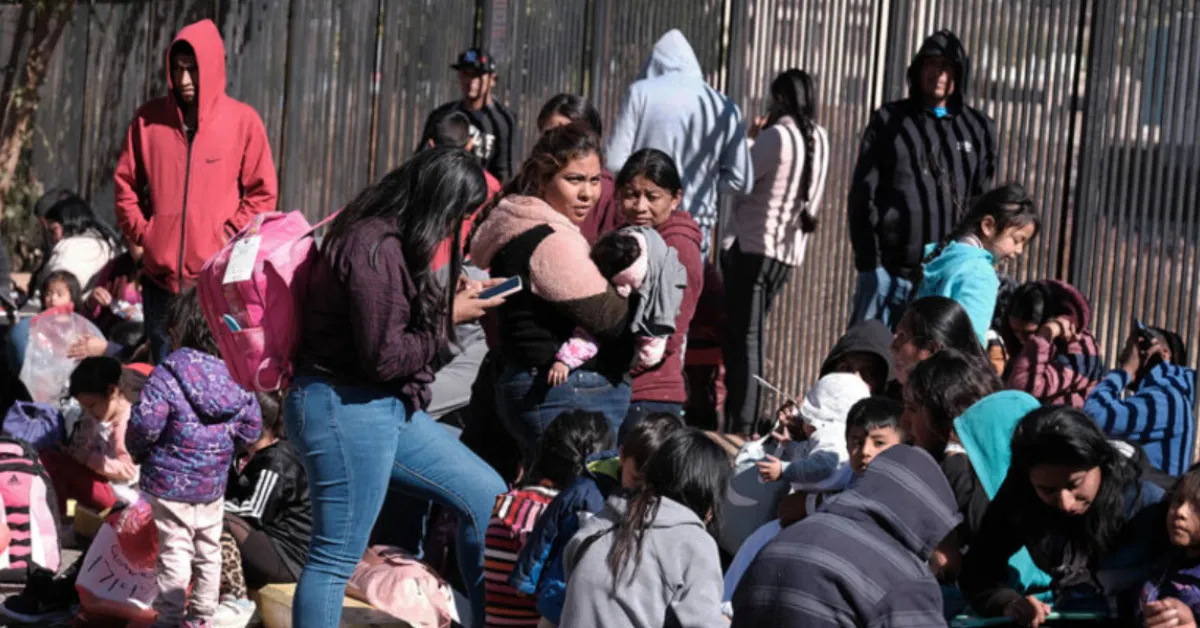Fear of Deportation and Discrimination Push Some Immigrants to Exit the US

A discernible trend has emerged within the United States, where a portion of the immigrant population, including those with legal status, are choosing to voluntarily return to their countries of origin.
This phenomenon is driven by growing fears over increasingly stringent immigration policies and a perceived rise in discrimination, causing some to believe that the US no longer offers the welcoming environment it once promised. For individuals like Jessika Cifuentes, a 51-year-old US citizen now residing in Antigua, Guatemala, the decision to leave after 14 years was not taken lightly.
Despite building a thriving business and establishing strong community ties in Utah, Cifuentes felt compelled to leave due to shifts in the political climate, combined with personal setbacks. She expresses concerns that her Latino heritage made her a target for discrimination, regardless of her citizenship status.
"Now, from what I've seen, being a citizen is no longer enough; just being Latino is enough," Cifuentes told el Nuevo Herald. "I didn't want to expose myself to that. I couldn't keep living in a place where I'm discriminated against without people even knowing who I am just because I have a Latino last name."
The experiences of immigrants like Cifuentes are not isolated incidents. Numerous individuals and families are contemplating similar decisions. The driving forces behind this exodus stem from a combination of factors, including increasingly strict immigration enforcement policies that contribute to a sense of unease among immigrant communities.
Expanded detention programs, increased deportations, the revocation of Temporary Protected Status (TPS) for nationals from several countries, and the curtailment of humanitarian parole programs have all played a role in creating this environment. The uncertainty surrounding programs like Deferred Action for Childhood Arrivals (DACA) further compounds these anxieties.
Juana Iris Estrada, who arrived in the US at age 10 and is currently protected under DACA, exemplifies this fear. Estrada and her husband, also a DACA recipient, are preparing to relocate to Puebla, Mexico, citing the emotional toll of living under the constant threat of deportation.
"One of the reasons we're leaving is because of everything that's happening under this president's administration," Estrada said. "Honestly, the emotional toll is heavy. I'm a mother. My husband and I both have DACA, and it could be revoked at any moment, leaving us completely unprotected."
The decision to leave is fraught with logistical and emotional challenges, including gathering necessary paperwork, selling homes, and uprooting families from communities where they have established lives over decades. For many, this voluntary return to their homeland is not a romantic ideal. They leave behind children, careers, and a place they call home, for the unknown future of a country they have been removed from for years.
The administration of President Donald Trump has emphasized a policy of mass deportations, initially focusing on immigrants with criminal records. However, human rights organizations have raised concerns over the deportation of non-criminal immigrants, potentially exposing them to persecution in their countries of origin. Data from the Department of Homeland Security (DHS) revealed that over 142,000 deportations occurred in the first 100 days of the Trump administration.
Data from Immigration and Customs Enforcement (ICE) indicates a significant surge in deportation flights, reaching a high of 1,083 in May, the highest since January 2020, according to immigration activist Thomas H. Cartwright. Immigration attorney Richard Hein describes a climate of "terror and fear" within immigrant communities, with reports of raids conducted by agents lacking visible identification and an alleged disregard for due process.
"We truly have an administration that is outside the law and is ignoring a Supreme Court ruling, in the specific case of Kilmar Abrego GarcÃa, to facilitate his return to the United States. And not a finger has been lifted to respect that Supreme Court ruling," Hein said.
The perception of a shift in societal attitudes toward immigrants is also contributing to these departures. Estrada recounts an incident in which her husband was verbally attacked simply for appearing Hispanic, underscoring a growing sense of alienation and discrimination.
Recent pronouncements from DHS Secretary Kristi Noem, who has stated that anyone entering the US illegally will be caught, deported, and permanently barred from reentry, have exacerbated these fears, particularly among children of immigrant families. Mireya Valladares, who arrived in the US at age 20, had always planned to return to her home country of Honduras before the age of 40. However, the increasingly restrictive immigration policies accelerated her timeline.
"Because of the immigration situation and everything that's happening, we moved up our trip and said, 'We're not going to wait any longer. Let's leave now, because we can't live here anymore," Valladares explained.
Despite owning businesses and contributing to the economy, Valladares and her husband, who lack legal status, have been unable to find a viable path to legalization. Her primary concern is the well-being of her children, whom she doesn't want to raise in an environment of "racism and discrimination." The trend is evident even among families who have children born in the US.
Honduran consular authorities in Florida have reported an increase in applications for citizenship for US-born children of Honduran parents, signaling that families are seeking to secure dual citizenship in preparation for a potential return to their country of origin.
These voluntary departures, while rooted in personal circumstances, raise profound questions about the state of immigration in the United States. Furthermore, these departures represent a loss for the American economy, as these individuals represent a valuable source of labor and entrepreneurship.














Add new comment